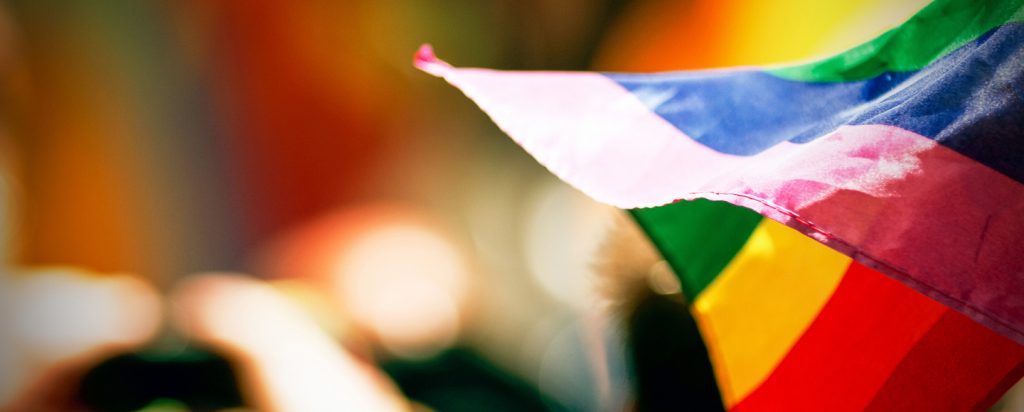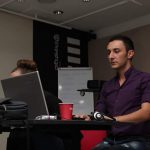
Behind the LGBT, LGBTIQ, LGBTIQA acronyms are real people, who often face serious discrimination problems. In East Sarajevo, these people work hard to stay under the radar to avoid prejudices and conflict.
Behind the LGBT, LGBTIQ, LGBTIQA acronyms are real people, who often face serious discrimination problems. In East Sarajevo, these people work hard to stay under the radar to avoid prejudices and conflict.
B.R. lives in East Sarajevo. Although he considers it a private matter, he admits he is gay. “There is no community – we do not have any cafes here, like in Sarajevo, with exhibitions, screenings and similar events, but frankly, there are not many cultural events here in general,” B.R. explains. According to him, events like book promotions and exhibitions rarely occur in East Sarajevo and, when they do, there is almost no chance that a book promotion (for instance) would focus on literature related to LGBT issues.
Vanja Tešanović, a youth human rights activist from East Sarajevo explains how to best approach issues such as LGBT rights. “The organizations that deal with these topics do not identify LGBT rights as separate: they are observed in the wider context of human rights,” Vanja says. She supports this approach to this field of work and engagement.
“In a place like East Sarajevo, I think that it is easier to point to human rights as a whole and thus strengthen the awareness about them – focusing solely on LGBT rights would be counterproductive,” she adds.
According to her, the strongest reactions occur when someone mentions the pride parade. “You often hear very homophobic viewpoints. I think people are sometimes not aware of how hurtful this can be. Usually, people realize this when you point out that, in someone else’s eyes, they could be considered a minority,” Vanja says.
B.R, who does not want to reveal his identity for security reasons, says that the life of LGBT people is not easy anywhere in the city. “You constantly have to deal with the fact that someone has something against you. It’s not just the comments that are a problem, but that you cannot get a job if you mention that you are gay, you cannot rent an apartment – these essential needs are denied to you,” he explains.
According to B.R., homophobia is very present, but it largely boils down to personal beliefs. However, as there are no LGBT-focused events, it is hard to start a dialogue about the general mood.
“Let’s not kid ourselves, there is a lot of hatred and misunderstanding and it will not disappear overnight on its own, but a law that could protect you from such things is the key,” B.R. believes.
“To use the word ‘community’ feels incorrect. There is no community. There are only individuals who remain quiet about their sexuality. This environment fosters silence, so everything remains ‘peaceful,’” he concludes.
Vanja mentions that, as part of a Sarajevo Open Center campaign, billboards were placed in several locations around East Sarajevo with the message “one should love whomever he/she wants” and with the rainbow colors as the background.
“To my knowledge, this was the first awareness-raising campaign for the local LGBT community. There were no problems, there was no vandalism, and this is a step forward- even if they were just billboards,” she says.

Discussions about the LGBT community and the issues it faces are often avoided. This was evidenced by a survey conducted in a busy pedestrian area in East Sarajevo. After they heard the question ‘How do you think LGBT people feel in your community?’ many people just abandoned the conversation. A few people gave responses such as, “I don’t know anything about that” or, “life isn’t easy for them, but it’s not easy for anyone.” Other responses included, “it’s hard for everyone and people cope with their problems in their own ways” and “why are you focusing on them, why not ask how anyone here feels?”
These responses, albeit from random passers-by, are representative of the general stance that citizens of BiH and East Sarajevo take regarding such matters. Burdened with economic problems and the everyday pressures of life, they do not have the will to deal the issues that minority groups are facing. Although it was not the norm, it is worth mentioning that there were comments made that called for the lynching of members from the LGBT community.
Our interviewees are convinced that the lack of cultural and public events in East Sarajevo is contributing to the invisibility of the city’s LGBT community. They also mentioned that, when comparing Sarajevo and East Sarajevo, we must bear in mind the proximity of these two cities and their respective histories if we are to understand the current climate surrounding LGBT-related issues.
“To us, it makes sense to look to Sarajevo as a positive example. Day by day, case by case, we continue to see the ways in which community events and activities that are dedicated to promoting awareness and dialogue would greatly benefit our city,” Vanja concludes.






